MacBook or iPad: can Apple's tablet replace a laptop for work or uni?
Trying to decide between a new MacBook or iPad? We help explain the differences and give our top recommendations

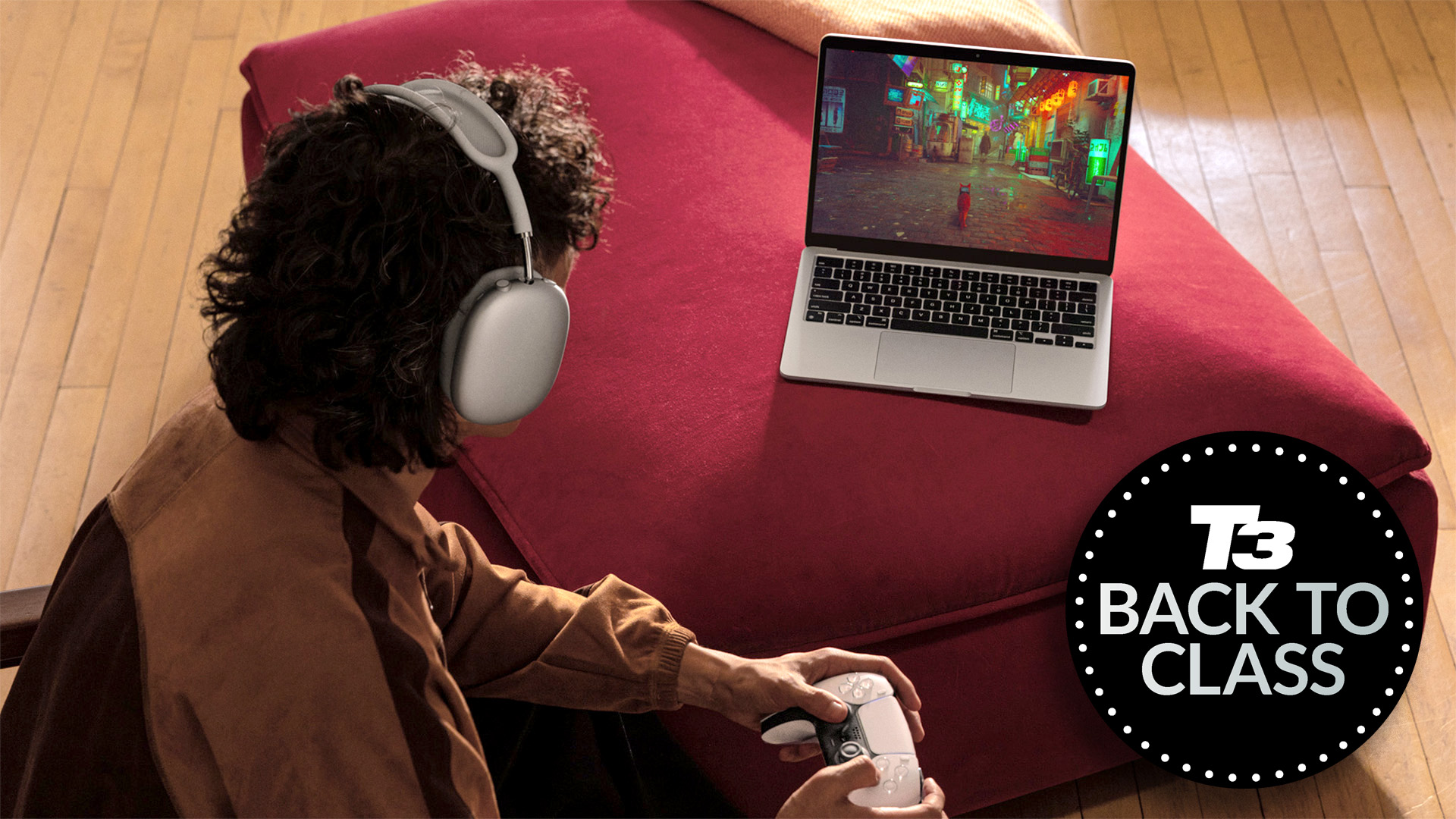
There was a time when Apple’s iPad range had plenty of power, but its software wasn’t quite up to task to completely replace the best laptops available. Over the last few years, however, Apple's iPadOS software has significantly improved with features like Stage Manager and apps being designed specifically for the tablet, such as Adobe's Photoshop, allowing for a much better user experience.
Whether an iPad can replace one of the best MacBooks very much depends on who you are and what you need to do on your device. I’ve reviewed all available MacBooks and all the best iPads over the last couple of years, and I use both depending on the task at hand.
I love an iPad for taking notes with an Apple Pencil, split screen is good for multitasking, and you’ll save money buying an iPad over a MacBook if you're just going to opt for one. There’s more than enough power to do the majority of tasks too, depending on the model you choose, but you might find you’ll have to add a couple of extra clicks to get some things done compared to a MacBook.
I love my MacBook for image editing as I find the workflow quicker, but that also comes from years of using a particular process on a MacBook, so I am a little stuck in my ways. Being able to have multiple apps open at once is another benefit of Apple's macOS desktop operating system, though, and something you can’t do on iPadOS.
To choose between an iPad and a MacBook therefore, first think about your workflow and what you predominantly need to do. An iPad is great for students looking to make notes in a lecture, while a MacBook is better for those doing more graphical work, as well as those who require multiple apps open at once on the same screen.
If you think a Windows PC or Chromebook might be a better fit for you, we have a best laptops guide and best Chromebooks guide that can help focus your attention in those areas – the latter is particularly good if you want to spend as little as possible, but Google's Chrome OS is altogether less simple than Apple's offerings.
Apple iPad Air
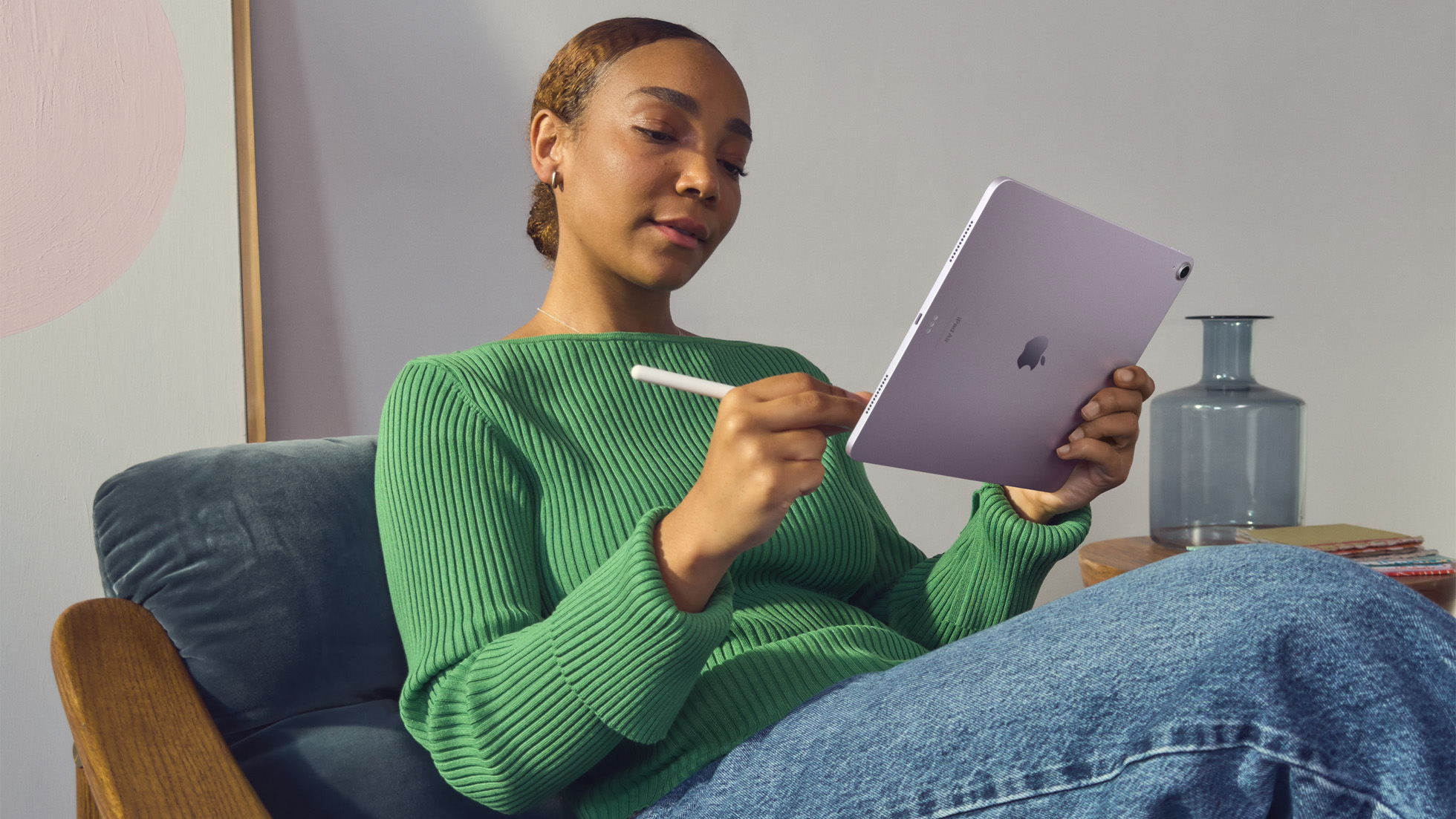
The Apple iPad Air (M2) is the iPad I’d recommend to the majority of people. There’s heaps of power under the hood, as this model moved to the M2 chip earlier this year, so it is more than capable of handing even some of the most demanding of tasks. There are two size options – 11-inch and 13-inch – and a range of colours, so you can pick one to stand out a little.
Get all the latest news, reviews, deals and buying guides on gorgeous tech, home and active products from the T3 experts
Its thin and lightweight build mean it’s a great device for carrying around – and while adding a keyboard does make it a little heavier, you can snap the keyboard on and off depending on what you’re doing. It’s compatible with both the Apple Pencil USB-C, as well as the latest Apple Pencil Pro, and it’s a stellar device for note-taking, as well as watching Netflix. You can handwrite notes and they will turn into text, and with the upcoming iPadOS 18 software, coming later this year, your handwriting will be subtly improved too.
There are some limitations with iPadOS as I mentioned in the intro above, but there are quick ways to switch between apps: split screen is very useful for working on two things at once, while being able to use both the touchscreen and trackpad when you’ve got a keyboard attached is great. You'll save a touch compared to buying a MacBook too, as you can see from the pricing widget embedded below:
Apple MacBook Air
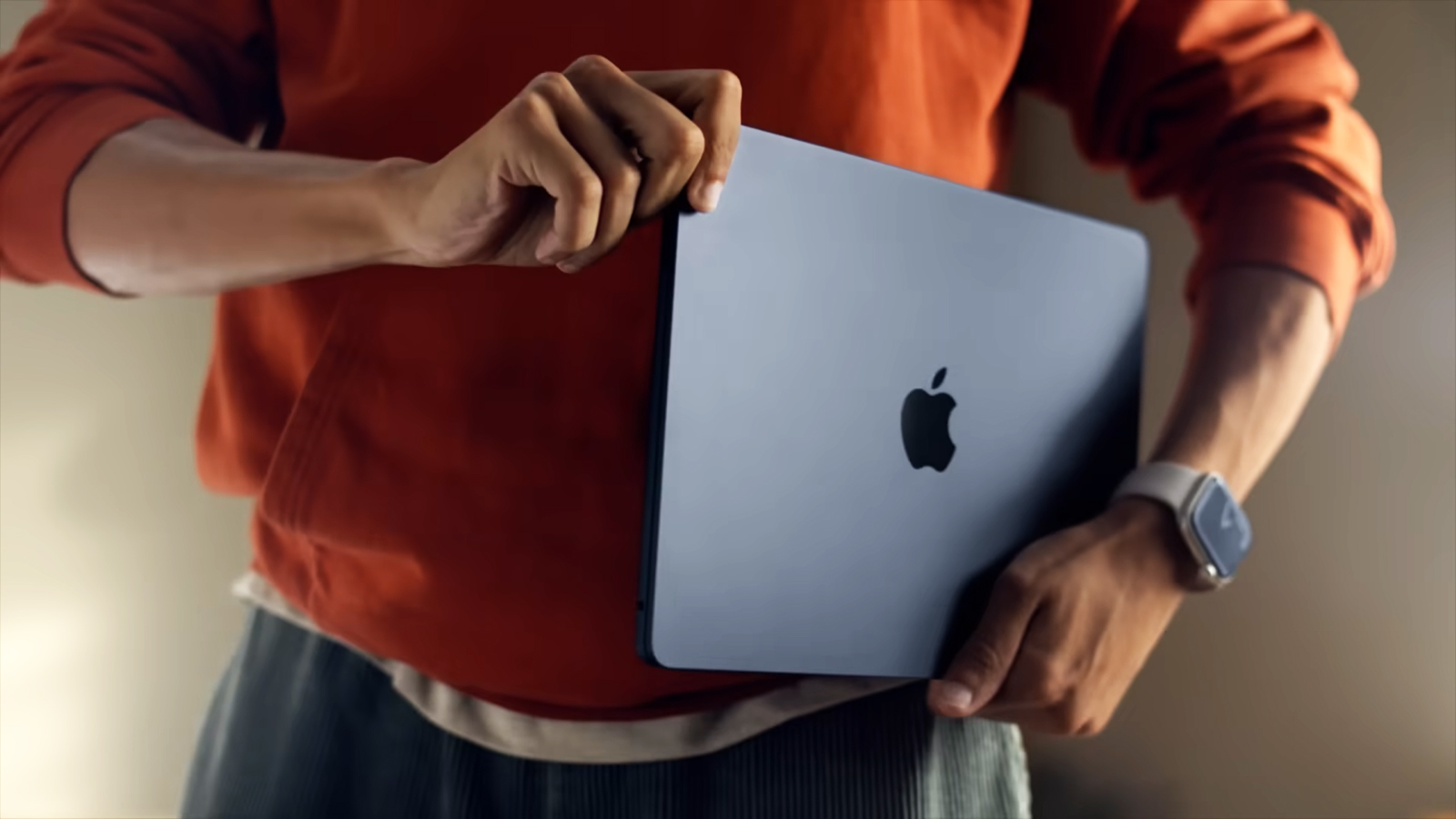
For the MacBooks, it’s also the Air model I’d recommend for the majority of people. It’s not as heavy as the MacBook Pro models and there is still a huge amount of power and capability with the latest M3 chip. You loose out on a couple of ports, so that’s worth keeping in mind depending on what you do – photographers might appreciate the SDXC slot on the MacBook Pro, for example – but the lightweight build is great for carrying around.
There are four colour options for the MacBook Air (M3, 2024) – Silver, Space Grey, Midnight and Starlight – and two size options of 13-inch and 15-inch. The keyboard on both is very nice to type on and the trackpad is lovely and responsive. You’ll get a fluid experience from the software too and while a MacBook does cost more than the iPad Air – although the gap shrinks when you add in a keyboard dock and Apple Pencil for that iPad purchase – you can overlay multiple apps on the screen and that will be helpful for some people.
There are some extra features coming with macOS Sequoia too in that you will be able to snap multiple apps into sections on the screen (split screen lets you do two currently), as well as iPhone Mirroring so you can control your iPhone from your Mac. I also prefer working with a MacBook on my lap when on the move – something that's a little trickier, I find, with an iPad and keyboard combination.
Apple Pencil USB-C
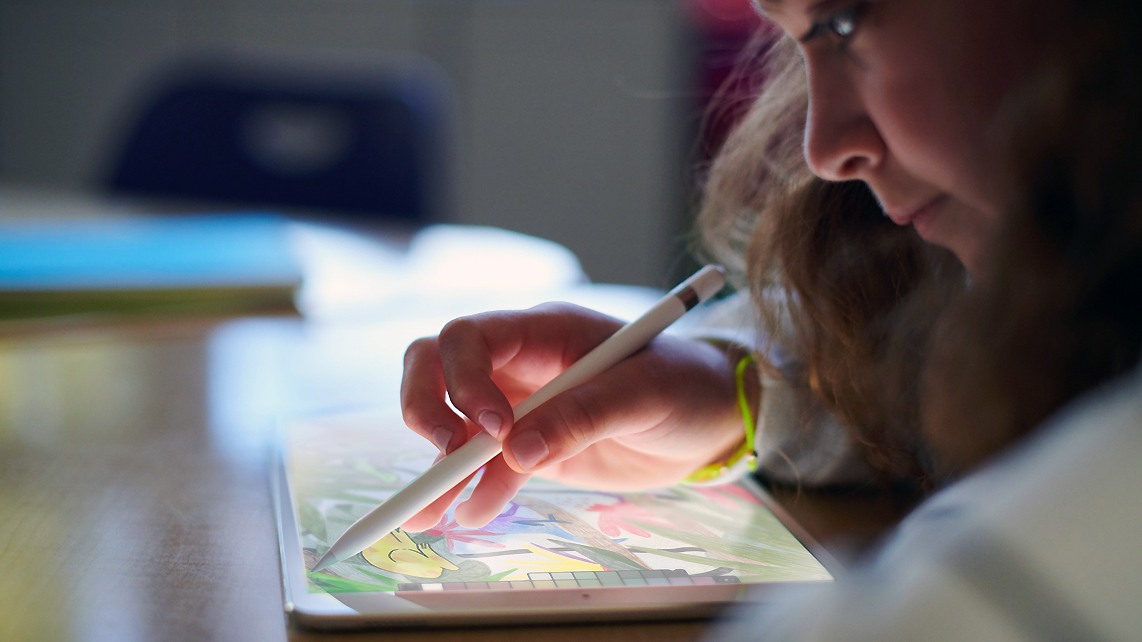
If you’ve decided an iPad can cover off your daily tasks well enough, and you think you might use it for notes at any point, I highly recommend getting yourself an Apple Pencil. There are a couple of options, though it depends on which iPad you buy as to which are compatible so double check before you pick your Pencil.
The Apple Pencil USB-C is the entry point into the stylus options from Apple, and it’s a solid option for general note taking. Easy to use, charges via USB-C at the bottom of your iPad and it’s lightweight and responsive.
If you want to draw on your iPad, the Apple Pencil Pro is a delight, with a tilt feature that changes the thickness of the pen strokes, while a squeeze gesture lets you change options quickly. It also snaps on magnetically to the side of the iPad Air and iPad Pro models, charging automatically when connected.
Do note, however, that no MacBooks are touchscreen-enabled and none of them are compatible with the Apple Pencil – this is an iPad-only feature!
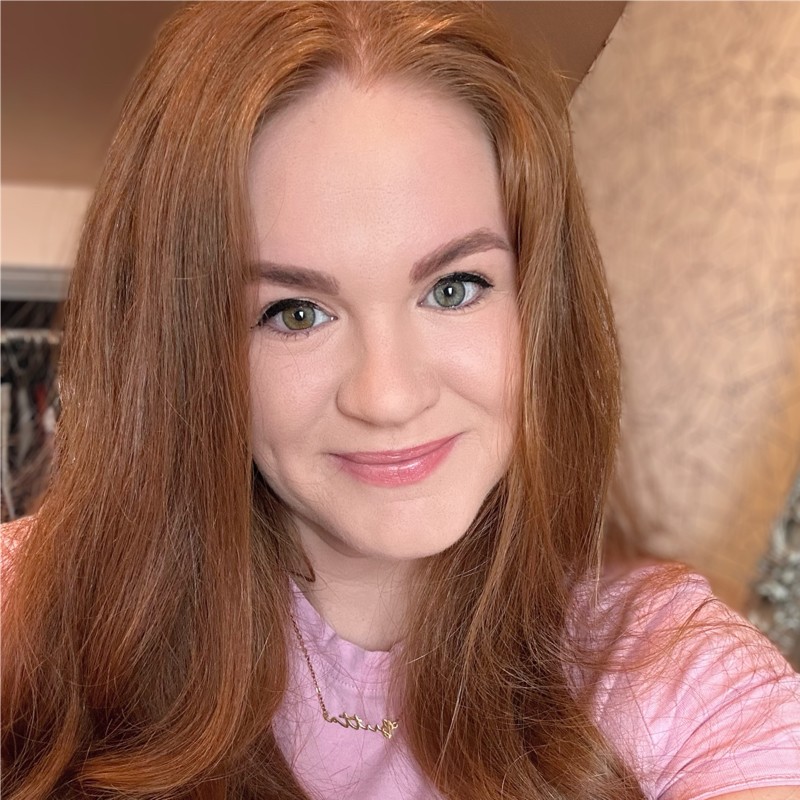
Britta is a freelance technology journalist who has been writing about tech for over a decade. She's covered all consumer tech from phones, tablets and wearables to smart home and beauty tech, with everything in between. She has a fashion journalism degree from London College of Fashion and previously did a long stint as deputy editor of Pocket-lint, but you’ll now find her byline on several titles including GQ, the Express, the Mirror, TechRadar, Stuff and iMore. You'll never find her without her Apple Watch on, aiming to complete her rings so she can justify the extra bar of chocolate and she loves a good iPhone trick.